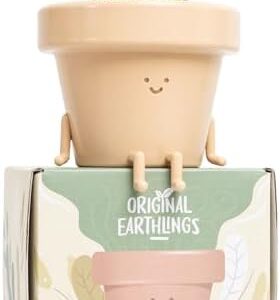Growing your own vegetables can be a truly rewarding experience. Not only does it provide you with a constant supply of fresh, organic produce, but it also has a number of health benefits that can improve your overall well-being. From reducing stress and anxiety to increasing your intake of essential nutrients, vegetable gardening can have a positive impact on both your physical and mental health.
One of the most obvious benefits of vegetable gardening is the access to fresh, nutrient-rich produce. When you grow your own vegetables, you have complete control over what goes into your food. You can avoid harmful pesticides and chemicals, ensuring that your produce is as healthy and natural as possible. This means that you are getting the full benefits of the vitamins, minerals, and antioxidants that vegetables provide, which can help boost your immune system and protect against chronic diseases.
In addition to providing you with a bounty of fresh vegetables, gardening can also help you stay active and fit. Digging, planting, weeding, and watering all require physical exertion, which can help improve your strength, endurance, and flexibility. Studies have shown that gardening can be just as effective at burning calories as other forms of exercise, such as walking or cycling. Spending time outdoors in the fresh air and sunshine can also help boost your mood and energy levels, making you feel more invigorated and motivated.
Not only does gardening provide physical health benefits, but it can also have a positive impact on your mental well-being. Spending time in nature has been shown to reduce stress, anxiety, and depression, and gardening is a great way to connect with the natural world. The rhythmic tasks of gardening, such as planting and harvesting, can be meditative and calming, allowing you to focus on the present moment and clear your mind of worries and distractions. The sense of accomplishment that comes from growing your own food can also help boost your self-esteem and confidence.
Another health benefit of vegetable gardening is the opportunity to connect with others and build community. Gardening can be a social activity, whether you are sharing tips and tricks with fellow gardeners, swapping seeds and plants with neighbors, or participating in community gardens and events. This sense of camaraderie and shared purpose can help combat feelings of isolation and loneliness, promoting a sense of belonging and support. Gardening with others can also provide motivation and encouragement, making the process more enjoyable and rewarding.
In addition to the physical and mental health benefits of vegetable gardening, it can also have a positive impact on the environment. By growing your own food, you are reducing your carbon footprint and greenhouse gas emissions, as you are not relying on transportation, packaging, and processing of store-bought produce. You can also help preserve biodiversity by growing heirloom and native varieties of vegetables, which can help protect plants that are at risk of extinction. By gardening sustainably and using organic practices, you can help promote healthy soil and water quality, creating a healthier ecosystem for plants, animals, and humans alike.
In conclusion, vegetable gardening is not only a great way to grow your own food, but it can also have a number of health benefits that can improve your overall well-being. From providing you with fresh, nutrient-rich produce to helping you stay active and fit, gardening can have a positive impact on your physical health. It can also promote mental well-being by reducing stress and anxiety, boosting mood and energy levels, and fostering a sense of community and connection. By gardening sustainably and with care for the environment, you can not only improve your health, but also contribute to a healthier planet for future generations. So, roll up your sleeves, dig in the dirt, and start reaping the numerous benefits of vegetable gardening today.






